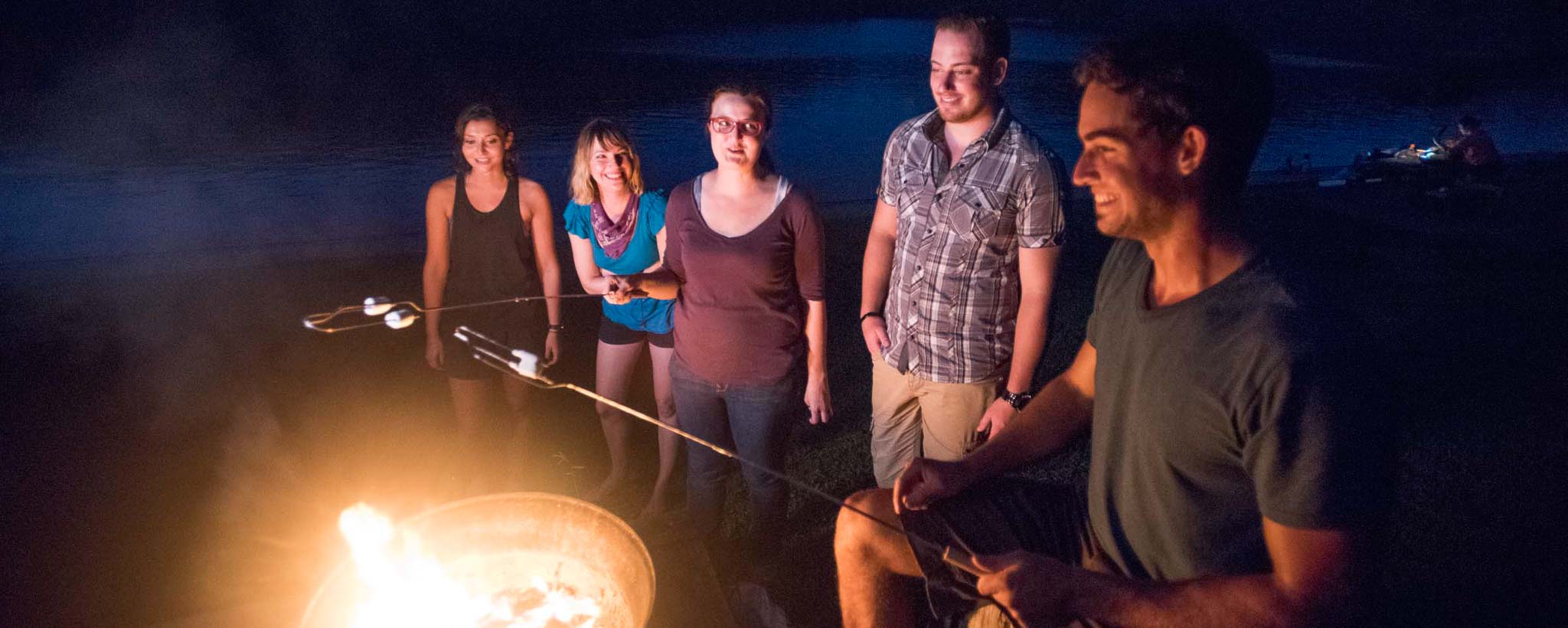Articles

Colorful Kindling Sparks the Need for Campfire Safety
With temperatures dropping and beautiful fall foliage appearing across the Tennessee Valley, experienced and non-experienced campers alike are dusting off their equipment for a trip to campgrounds on TVA dispersed recreation lands. But according to TVA Recreation Specialist Aurora Pulliam, saying “goodbye summer, hello fall” shouldn’t lower caution for fire hazards — it should increase it.
While the summer season can be known for dry spells and temporary fire bans, Pulliam notes that autumn is also the time to keep campfire safety a priority.
“While enjoying what TVA’s lands have to offer, it’s important that you light a campfire a safe distance from any flammable substance at all times,” she said. “This includes loose clothing, grass, leaves, stacks of wood or overhanging branches and trees because, whether it’s flying embers or kindling outside of the designated fire ring, the fire can escape the boundaries you have set for it. Dry, fallen leaves can make that happen more quickly and easily.”
Dead leaves can act as the unwanted connection between a campfire and the surrounding forest. Simply brushing these leaves, needles and other foliage from around the designated area before you build your fire can help prevent sparks from igniting and becoming a much bigger problem. For this reason, Pulliam advises not to create your own fire pit. It’s best and safer to use existing ones that have already been made with these fire hazards in mind.
Grills and steel fire rings or pits are already provided at all of TVA’s developed campgrounds and most campsites on undeveloped public land managed by TVA. They should be used at both developed sites and less-populated, wooded areas, as creating new ones could lead to a devastating disaster or unnecessarily scorch the earth.
The impact
TVA’s Natural Resources Prescribed Fire Team uses fire under controlled conditions to revitalize targeted areas, but accidental wildfires have the opposite, negative effect.
“I’m often asked if accidental fires and prescribed fires have the same effect,” she said. “They do not. Prescribed burns are carefully conducted to meet very specific objectives at a particular site, and they are done by qualified personnel with specialized equipment. Accidental wildfires burn faster and with more intensity, and they usually damage the very plant communities we’re trying to help. And of course they can spread quickly to nearby private property. Wildfires are never desirable on TVA land and campers should take every precaution to prevent them.”
Preventative measures
To ensure safety for yourself and others, here are some easy guidelines that Pulliam and her team have recommended to follow before and after you light the match:
- Before starting a campfire, establish a safety boundary — removing all leaves, sticks and objects within three to five feet of the fire ring.
- Remember to keep all people and equipment at this same distance from the flames.
- After lighting the fire, make sure that the match is thoroughly extinguished before disposal, and store all matches and lighters at a safe distance from the fire.
- Always keep a bucket of water close by just in case you need to extinguish any stray flames.
- Never burn trash in the campfire, as it’s bad for the environment, and stray ashes or embers could start an unwanted fire.
- When finished with the fire, pour water or dirt over the coals and stir with a shovel. This ensures that all embers are extinguished and prevents the fire from restarting.
- Read all TVA campground rules concerning prohibited activities, such as shooting fireworks.
- Away from the campfire, be aware of cars backfiring or sparking.
- Be sure to properly dispose of cigarette butts.
- If a fire gets out of control, call 911 immediately.
“A campfire is fun, but it always carries the potential of danger,” Pulliam said, “so it should always be respected.”